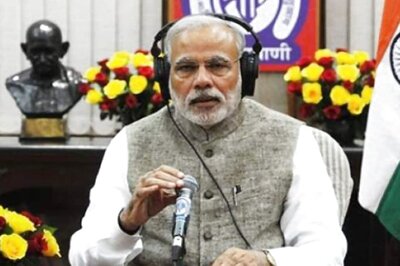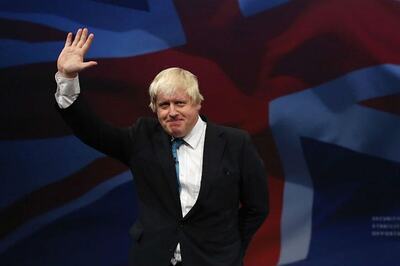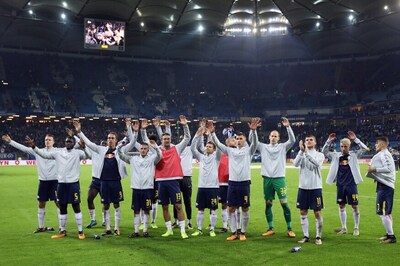
views
Provision of water is predominantly in public sector hands, operating through state-owned infrastructure and municipal services. Service is often inefficient, from antiquated networks plagued by leakage and disrepair. Or simply non-existent, and left to the informal sector of vendors of jerry-cans and tankers. Water resources have been squandered by mismanagement and drained by agricultural subsidies and industrial contamination. In the last 20 years, private companies have played a growing role in formal water provision, creating a powerful debate about profit made from an essential commodity and about whether their involvement has improved or worsened access and service for consumers.
Water is a consumer right
A growing movement of grassroots, community, development and NGO voices, seconded by the United Nations, defend water as a public good and inalienable human right. There have been 10 formal UN declarations on the right to water since 1990. The UN General Comment on the Right to Water, incorporated into the Covenant on Economic, Social and Cultural Rights in 2002, states that "water should be treated as a social and cultural good, and not primarily as an economic commodity." The human rights approach articulated by RedVida and other partners of Consumer Organisations like VOICE says no consumer should be excluded from access to water for reasons of poverty. Water is valued as a community asset to be protected from capture by economic elites.
Consumers are the main stakeholders in the paradigm clash between water as a human right and water as an economic good, but the tools of consumer rights and protection have been largely missing from the ring. In many nations, consumer protection legislation is not enforced, does not exist, or does not regulate the provision of public utilities. Water networks, as with electricity, gas and other household services, constitute "natural" monopolies, because it is not economic to construct parallel distribution networks and consumers have no alternative sources of supply. Like other monopolies, water distribution must be subject to strict regulation - even more so given the vital resource it provides. Water sector reforms must be assessed from the vantage point of consumer protection - and can be improved by the promotion of water as a consumer right.
The eight basic consumer's rights
Satisfaction of Basic Needs: To have access to basic, essential goods and services: adequate food, clothing, shelter, health care, education, public utilities, water and sanitation.
Safety: To be protected against products, production processes and services which are hazardous to health or life.
Information: To be given the facts needed to make an informed choice, and to be protected against dishonest or misleading advertising and labelling.
Choice: To be able to select from a range of products and services, offered at competitive prices with an assurance of satisfactory quality.
Representation: To have consumer interests represented in the making and execution of government policy, and in the development of products and services.
Redress: To receive a fair settlement of just claims, including compensation for misrepresentation, shoddy goods or unsatisfactory services.
Consumer Education: To acquire knowledge and skills needed to make informed, confident choices about goods and services, while being aware of basic consumer rights and responsibilities and how to act on them.
A healthy, sustainable environmnet: To live and work in an environment which is non-threatening to the well-being of present and future generations.
Access to Water: The shocking facts
* One in six of the world's population (1.1 billion people) lacks an adequate supply of safe water
* Two out of five people in sub-Sahara Africa lack improved water supply
* In the 1990s, the number of children killed by diarrhoea exceeded the number of people killed in all armed conflicts since the Second World War
* Unconnected consumers commonly pay at least 10 times more, and sometimes up to 100 times more, per litre to vendors than do consumers hooked up to water networks.
The good news
Many more people have gained access to water over the past ten years: over 800 million people have gained access to improved water supply. During the 1990s, the proportion without water supply declined by 2 per cent.
The bad news
The world ran fast to stay in the same place during the 1990s, with important gains in access offset by population growth and urbanisation. The number of city dwellers lacking access to safe water increased by over 60 million.
The challenges
The urban populations of Africa, Asia, and Latin America and the Caribbean are growing dramatically, fueling unmet demand for already strained services. Even so, rural services lag far behind urban services.
The Millennium Development Goals adopted in 2000 by the international community set a target to "halve by 2015 the proportion of people without sustainable access to safe drinking water."
The World Summit on Sustainable Development, held in 2002, added the target to "halve by 2015 the proportion of people who do not have access to basic sanitation."
To achieve these targets in the developing world over the next decade, an additional 1.5 billion people will need access to safer water supply.
(Bejon Misra is CEO, Consumer VOICE)first published:December 05, 2006, 10:43 ISTlast updated:December 05, 2006, 10:43 IST
window._taboola = window._taboola || [];_taboola.push({mode: 'thumbnails-mid-article',container: 'taboola-mid-article-thumbnails',placement: 'Mid Article Thumbnails',target_type: 'mix'});
let eventFire = false;
window.addEventListener('scroll', () => {
if (window.taboolaInt && !eventFire) {
setTimeout(() => {
ga('send', 'event', 'Mid Article Thumbnails', 'PV');
ga('set', 'dimension22', "Taboola Yes");
}, 4000);
eventFire = true;
}
});
window._taboola = window._taboola || [];_taboola.push({mode: 'thumbnails-a', container: 'taboola-below-article-thumbnails', placement: 'Below Article Thumbnails', target_type: 'mix' });Latest News
Water is essential for life and a limiting factor in development. But one in six of the world's people have no access to clean water and twice as many lack adequate sanitation. In the mushrooming cities of the developing world, the growing gap between demand and supply leaves the poor unserved. In rural areas, water for living also means water for crops. The United Nations predicts that by 2050, at least one out of four people are likely to live in countries affected by chronic or recurrent shortages of freshwater.
Provision of water is predominantly in public sector hands, operating through state-owned infrastructure and municipal services. Service is often inefficient, from antiquated networks plagued by leakage and disrepair. Or simply non-existent, and left to the informal sector of vendors of jerry-cans and tankers. Water resources have been squandered by mismanagement and drained by agricultural subsidies and industrial contamination. In the last 20 years, private companies have played a growing role in formal water provision, creating a powerful debate about profit made from an essential commodity and about whether their involvement has improved or worsened access and service for consumers.
Water is a consumer right
A growing movement of grassroots, community, development and NGO voices, seconded by the United Nations, defend water as a public good and inalienable human right. There have been 10 formal UN declarations on the right to water since 1990. The UN General Comment on the Right to Water, incorporated into the Covenant on Economic, Social and Cultural Rights in 2002, states that "water should be treated as a social and cultural good, and not primarily as an economic commodity." The human rights approach articulated by RedVida and other partners of Consumer Organisations like VOICE says no consumer should be excluded from access to water for reasons of poverty. Water is valued as a community asset to be protected from capture by economic elites.
Consumers are the main stakeholders in the paradigm clash between water as a human right and water as an economic good, but the tools of consumer rights and protection have been largely missing from the ring. In many nations, consumer protection legislation is not enforced, does not exist, or does not regulate the provision of public utilities. Water networks, as with electricity, gas and other household services, constitute "natural" monopolies, because it is not economic to construct parallel distribution networks and consumers have no alternative sources of supply. Like other monopolies, water distribution must be subject to strict regulation - even more so given the vital resource it provides. Water sector reforms must be assessed from the vantage point of consumer protection - and can be improved by the promotion of water as a consumer right.
The eight basic consumer's rights
Satisfaction of Basic Needs: To have access to basic, essential goods and services: adequate food, clothing, shelter, health care, education, public utilities, water and sanitation.
Safety: To be protected against products, production processes and services which are hazardous to health or life.
Information: To be given the facts needed to make an informed choice, and to be protected against dishonest or misleading advertising and labelling.
Choice: To be able to select from a range of products and services, offered at competitive prices with an assurance of satisfactory quality.
Representation: To have consumer interests represented in the making and execution of government policy, and in the development of products and services.
Redress: To receive a fair settlement of just claims, including compensation for misrepresentation, shoddy goods or unsatisfactory services.
Consumer Education: To acquire knowledge and skills needed to make informed, confident choices about goods and services, while being aware of basic consumer rights and responsibilities and how to act on them.
A healthy, sustainable environmnet: To live and work in an environment which is non-threatening to the well-being of present and future generations.
Access to Water: The shocking facts
* One in six of the world's population (1.1 billion people) lacks an adequate supply of safe water
* Two out of five people in sub-Sahara Africa lack improved water supply
* In the 1990s, the number of children killed by diarrhoea exceeded the number of people killed in all armed conflicts since the Second World War
* Unconnected consumers commonly pay at least 10 times more, and sometimes up to 100 times more, per litre to vendors than do consumers hooked up to water networks.
The good news
Many more people have gained access to water over the past ten years: over 800 million people have gained access to improved water supply. During the 1990s, the proportion without water supply declined by 2 per cent.
The bad news
The world ran fast to stay in the same place during the 1990s, with important gains in access offset by population growth and urbanisation. The number of city dwellers lacking access to safe water increased by over 60 million.
The challenges
The urban populations of Africa, Asia, and Latin America and the Caribbean are growing dramatically, fueling unmet demand for already strained services. Even so, rural services lag far behind urban services.
The Millennium Development Goals adopted in 2000 by the international community set a target to "halve by 2015 the proportion of people without sustainable access to safe drinking water."
The World Summit on Sustainable Development, held in 2002, added the target to "halve by 2015 the proportion of people who do not have access to basic sanitation."
To achieve these targets in the developing world over the next decade, an additional 1.5 billion people will need access to safer water supply.
(Bejon Misra is CEO, Consumer VOICE)




















Comments
0 comment